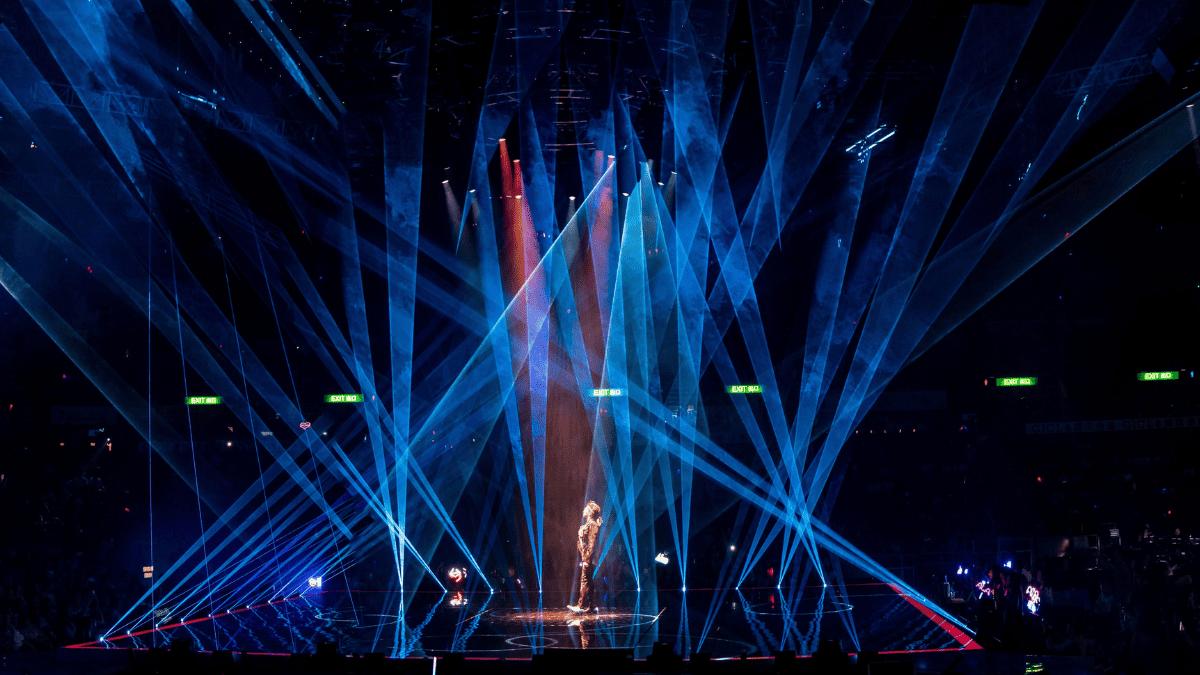Welcome to Engineer Academy where we’re exploring an A to Z of Engineering – everything from acoustics to zoos.
In each episode, we spin the wheel to find out what type of engineering we’ll be exploring with the help of Engers, our engineering expert.
You can listen to the full series of the A to Z of Engineering here.
Let’s take a look at Light Engineering.

Light is important in almost every part of our lives. After all, if we didn’t have light, we wouldn’t be able to see where we are or where we’re going, read a book after dark, watch tv or play a computer game. And don’t forget the most important light of all – in our fridges. Without that, we’d never find that tasty morsel at the back!
Most man-made light is from lightbulbs – for the lights in our homes and schools, the streetlights that keep us safe on the roads, the lights that help dentists see into our mouths – and not forgetting dazzling light displays at the theatre and concerts.

Light engineering – sometimes known as illuminating engineering, mainly deals with the design of light sources – that’s like creating new types of light bulbs, as well as planning the lighting systems of buildings, old and new, Outdoor areas like stations and highways…, and also specialist lighting, like for film sets, concerts and sport stadiums.

As we’ve seen there’s one thing that all these places have in common – it’s the light bulb itself! Bulbs have changed enormously over the decades, especially recently with greener designs such as LED bulbs with their low energy consumption. They also come in many different shapes, sizes and colours – helping people adapt the moods of their rooms.
And don’t forget, it’s not just in lights that we have bulbs – there’s the standby button on appliances, the screen on your mobile phone and computer, and don’t forget your torch!
Light engineers will have helped develop all of these. To do so, they need to know about different sources of energy and how each can be converted into light. They also need to understand how lights behave – like how bright they will be, how warm they might get and how much energy they’ll consume.
As well as developing new things, light engineers work on improving existing lights, perhaps increasing their life span so that there is less waste or use less energy to help the environment. And after designing all those different bulbs and systems, they help work out which bulb is the right one for the job.
Whilst office and factories need to be bright so that workers can see what they’re doing, some types of light generate a lot of heat and that might not be great where there are flammable products about. So special explosion-proof lighting might be used.
People often use full spectrum lighting in their homes – these mimic natural daylight and can feel warmer.
But for roadworks and around stadiums, they might need a cooler, brighter light with very high illumination for safety and maximum visibility.
Maintaining lighting systems is vital for businesses and on the road where lighting keeps everyone safe. And that’s another part of the job – whether designing updated motorway lighting or refitting a factory. Now that’s all serious and sensible stuff – right? But there’s another type of lighting engineer that’s a little bit more…. Well showbiz!
If you’ve been to the theatre, you’ll know that lighting can be used to create exciting and atmospheric environments and displays – from spotlights to glitter balls to seasonal light shows. The entertainment industry employs a variety of lighting engineers in live performances, special events, television shows and films.

Light engineers also provide lighting effects for events such as festivals, dance recitals and weddings. They create lighting effects to enhance scenes and determine moods through a lighting control panel. They will collaborate with directors to plan and execute lighting elements throughout a performance.
Light engineers need a thorough knowledge of electrical systems. It’s also a creative job too – and there’s lots of tech which needs to work with the lighting.
And that’s our take on the letter L – it’s been LOVELY!!
If you would like to check out some other types of engineering, why not check out Lead Testing, Load or Lubrication engineering!
Join us again next time to spin the wheel and explore another letter in the A to Z of Engineering!
Engineer Academy: A to Z of Engineering
Created with support from a Royal Academy of Engineering Ingenious Grant
Add a commentA to Z of Engineering
Engineering is all around us! We’re exploring an A to Z of everything engineering from acoustics to zoos.
More From A to Z of Engineering







